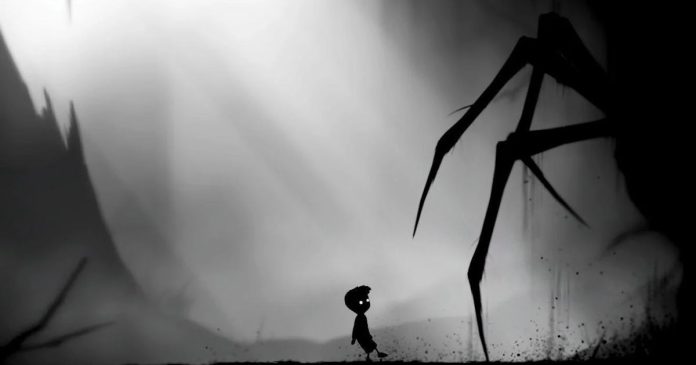Two console generations ago, the very concept of the indie video game left the siloed corners of the internet and flash sites like Newgrounds to join major platforms. Places like WiiWare, Xbox Live Arcade, Steam, and PlayStation Network re-introduced players to smaller experiences, many of which were a far cry from the blockbuster ambitions of big publishers with dreams of emulating Hollywood. In this new space, fresh ideas flourished, inspiring new creatives to get the attention of players who wouldn’t have otherwise paid them any mind.
This was a golden age for indies, as every year provided multiple standout examples of how smaller, even one-man teams, were just as capable of making memorable experiences as the year’s biggest releases. World of Goo on the Wii arguably applied Nintendo’s vision for motion controls better than any other third-party that year. 2008 gave us Castle Crashers and Braid, two very different visions displaying what this new scene was capable of. In 2009, Brothers: A Tale of Two Sons marked an impressive debut from a team that is now one of the industry’s most celebrated.
In 2010, a little Copenhagen-based studio by the name of Playdead was the team that shone the brightest during this boom period. Its debut game Limbo was not only a glowing showcase for game design and a moody thrill ride through a relatably-terrifying unknown. It was the beginning of an new subgenre that paved the way for so many games that came after.
Limbo is a 2D platformer that puts the player in the shoes of an unnamed boy lost in a dream-like world willing to unalive you at the drop of a hat. The game is entirely silent, save for the spooky sounds of this seemingly infinite expanse of murky waters, cryptic forest trees, and unimaginable wild beasts. You’ll occasionally stumble upon the remnants of whatever this world was. You’ll even cross paths with other human beings, dead and alive. But none of it feels good or hopeful. Atmosphere is everything in Limbo, and it executes it in a way that feels oppressive and sickening.
The player is told nothing, compounding the feeling of being all alone. Instead, Limbo relies entirely on player intuition and environmental cues. It’s clear that Playdead studied the video games greats. Like Super Mario Bros World 1-1, the start of Limbo teaches its basics through clever encouragement. You grab the handle of a cart on your way because the boy reaches his hands towards it as you approach. The rope elevator teaches you about the physics of this world and how momentum affects everything in it.
Limbo is so intuitive in how it tutorializes its mechanics, you almost forget it has just three inputs: movement, jumping, and an action button. Instead, Limbo becomes a game focused entirely on its clever puzzles. Playdead squeezed every bit of mileage out of a game so simple. And while some of its more challenging parts eventually come down to trial and error, the instant load times mean failure is never much of a nuisance. You will die during the game’s equivalent of boss fights against massive spiders and environmental hazards. But the brutality of the game’s deaths is a shockingly effective (at times, sickly humorous) way to correct the player’s fault.
Limbo isn’t afraid to straight up eliminate you in gory fashion.
Playdead
By 2010, players had seen loving send-ups of the classic 2D action game a hundred times over. We’d seen gorgeous indie games that broke the brown and yellow mold of the mid-to-late 2000s. And games like Portal showed how puzzle games could reign supreme over the increasingly popular shooter genre. Limbo, however, combines its old-school game and puzzle design, its monochromatic art style, and its macabre setting to make an incredibly memorable journey that was unlike anything else at the time.
Limbo may be silent, but it speaks volumes throughout its four-hour runtime. In the quiet of its world, you can’t help but think about what it is you’re actually doing, where you are, and why this world is the way it is. Aside from the title, which may or may not be relevant to the game’s events at all, you’re free to interpret what this experience is. And even in its final moments, when it seems the purpose of the boy’s journey finally comes into focus, you’re still left to your own devices to understand what it is you just played through.
Limbo wasn’t afraid to be opaque. It wasn’t afraid to come across as harsh or too simplistic. It’s a confident game that doesn’t overstay its welcome for the sake of justifying its value. This revolutionary approach spawned an entire genre we’ll dub the “Limbo-like.” These journey-based games typically cast the player as a diminutive and vulnerable being making their way through a hazardous, atmospheric world, as the game’s story slowly unravels.
Limbo’s relies entirely on environmental storytelling.
Playdead
From Gris and Little Nightmares, to A Plague Tale: Innocence and The Vanishing Of Ethan Carter, Limbo-likes have taken different forms in terms of gameplay, but all stem from Playdead’s minimalist approach to storytelling, impressionable striking visuals, and intuitive, puzzle-based scenarios. Limbo’s legacy makes it one of the most important video games of its time, born out of the golden age of the then-new indie scene.
As influential as it is, it speaks volumes that this original still holds up as well as it does. If you haven’t played Limbo before, it’s still worth seeking out. Its simple visuals preserve its impeccable atmosphere. Its physics-based platforming is still fun to mess with, and its age means it will play on almost any device with a screen these days.
Limbo is one of the most important games ever made. A wonderful, twisted journey through the unknown, delivered in a way only this medium can execute, and it remains every bit the revelation it was when it was released 15 years ago.
